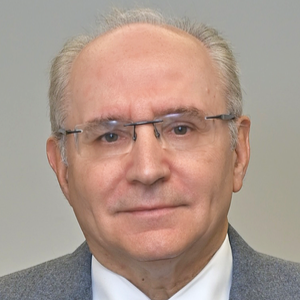Having practiced elder law for almost 35 years I have witnessed first-hand family members downplaying the severity of their elderly mother, father, grandparents, or loved one’s diminishing physical and mental condition. The best example I can give is when I ask a family member to describe their loved one’s physical condition and whether they are having any difficulties standing and/or walking, the most common response received is that they are “ok.” However, when I dig a little deeper and ask if they have fallen, I am surprised to hear that they have had several falls in recent months and years, with injuries.
A fall suffered by a senior often results in a broken hip and/or femur. A significant and serious injury that often requires surgery and resulting months of physical therapy. Unfortunately, it is inevitable that as one ages, varying degrees of diminished physical and mental capacity will ensue. Because of this, immediate family members who interact with the senior need to pay greater attention to their cognitive and physical condition. For example, are they able to remember recent events, particularly events that occurred in the last few days and/or weeks? All too often seniors can recall events from decades ago, but have difficulty remembering if someone visited them earlier in the day. If lapses of short term memory have become a common occurrence, the family should immediately seek to have their loved one see a neurologist to be evaluated. If the neurologist makes a determination that this is evidence of dementia (whether it be senile dementia, Alzheimer’s or Lewy Body) this should be the alarm bell to commence the process of investigating the elder law and long-term care planning options that are available. Delays in starting this process can often result in detrimental financial and health care consequences.
For example, I am most confident that there are hundreds, if not thousands of seniors in Westchester and Putnam whom have failed to avail themselves of the benefits of the Medicaid long term health care program even though they are both financially and physically eligible for the program. In many instances seniors are too proud and in denial about the reality that they need help with the activities of daily living (walking, dressing, feeding, bathing and toileting) and their children are often hesitant to inform their parents of their true beliefs as to the reality of their condition.
The longer one who has physical incapacities waits to obtain the necessary home care, the greater the risk of falling and suffering a serious injury which often expedites their physical and mental decline. Additionally, from a financial perspective, delays in implementing a Medicaid asset protection and long-term care plan will place a greater percentage of one’s life savings at risk and delay one’s potential eligibility for either Medicaid nursing home and/or Medicaid home care.
While no official directive or confirmation from the New York State Department of Health has been issued, it is likely that on January 1, 2022, the thirty (30) month look back period for Medicaid home care will be finally made effective. The implementation of said lookback period has been postponed since October 1, 2020, due to protections enacted under the Families First Cares Act, which prohibits states from restricting eligibility until the quarter following the end of the Public Health Emergency (PHE). The sixty (60) month look back period for nursing home Medicaid has remained in effect in spite of the pandemic.
Thus, up until January 1, 2022, one can make an uncompensated transfer of assets (gifts) to loved one’s and/or a Medicaid asset protection trust, and if they apply for Medicaid home care before January 1, 2022, (and are financially eligible for Medicaid and require assistance with the activities of daily living), they will not be subjected to the thirty (30) month look back and its subsequent disqualification from eligibility. The failure to take advantage of the absence of a look back period for Medicaid home care by someone needing care who has postponed the decision to get the care can be very expensive. The average cost of home care is between $6000 to $10,000 per month depending on the number of hours needed.
This best exemplifies that delays in taking action to protect one’s assets and availing oneself of the benefits of the Medicaid program can be costly.
For decades I have advocated that seniors must be proactive when it comes to protecting their life savings from the cost of long term care. Being proactive in the next five (5) months is imperative if one needs assistance with the activities of daily living.
















